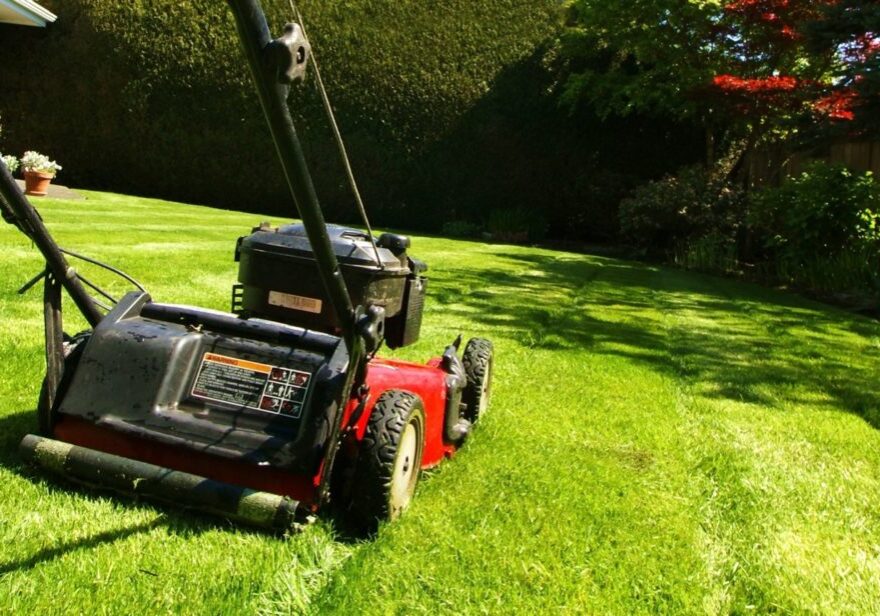How To Build A Successful Lawn Mowing Business

Having a successful lawn mowing business is about more than being a reliable lawn care provider to your customers. It takes strategy to gain new leads, turn those leads into revenue for your company, and maximizing profits on jobs.
Here are 10 Tips to Build a Successful Lawn Mowing Business:
Are you wondering how to manage a more successful lawn mowing business? Whether you’re just starting to plan your successful lawn care business or have been in the lawn care industry for years, making adjustments to your company can help make you more successful.
Below, we offer the 10 top tips for maximizing revenues and managing costs to help you create a more successful lawn mowing business.
1. Know Your Costs
One of the most important things a lawn mowing business can do if they want to be successful is to know your costs. Unfortunately, not knowing costs is one of the biggest and most common mistakes many lawn mowing businesses make.
To truly know your costs, you should have a system for tracking the equipment, inventory (fertilizer, etc.), actual labor costs, transportation costs, and more associated with the actual overall cost of a job.
With this information, you can make more informed decisions about your personal salary, the salary of your employees, your bids, how you purchase equipment and inventory, and more.
2. Improve Your Bidding Process
If your bidding strategy comes doesn’t utilize information from tracking your true job costs as well as knowledge of how much your competitors are charging for similar work, then you may be undercutting your profits or losing out on jobs you could have profitably attained. You should have a system for predicting which costs will go into a job (such as line-by-line inventory and costs) and understanding your profit margin on the job.
In addition, you should be spending as little time as possible on producing the bid. Tools such as Arborgold can help measure the square footage of a lawn using a drag and drop measurement system connected to the Google Maps satellite imaging API. This system can also help calculate costs based on the equipment, inventory, and labor needed to complete a job. It can also improve the way your bid looks by adding logos, images, CAD drawings, customer reviews, cover letters, and more.
3. Schedule Jobs Strategically
Every moment your crew spends in a vehicle driving to or from a job site adds to your overall expenses. For a successful lawn care company, you should think of this drive time not only as an expense in fuel and vehicle wear and tear, but also in unavailable equipment and labor. Instead of scheduling crews as they’re available and in the order that job comes up, a successful lawn mowing company will make strategic schedules that minimize drive time.
4. Monitor Your Crews
Part of knowing your costs and making sure no jobs fall through the cracks is by knowing where your crews are and when they’ve completed jobs. Having a way to monitor your crews via GPS keeps you in-the-know, allows you to offer better customer service by:
- Having more accurate information about where a crew is.
- Knowing which jobs are complete and which are not.
- Minimizing time between having a completed job and billing the customer.
- Knowing how much time a specific job took to better calculate job costs.
- Improving the ability to compare crew efficiency for more informed staffing decisions
5. Don’t Hold More Inventory (or Equipment) Than You Need
Another way to ensure your lawn mowing business is successful is to minimize the amount of capital you have tied up in inventory and equipment. This is important because it allows you to better control your cash flow. You can manage this by having a system for tracking which inventory you have and where you get that inventory and at what costs.
It can also be very helpful to have a system for seeing which secured jobs and prospective jobs are in the pipeline and their projected equipment/inventory needs so you can make more accurate predictions about which inventory and equipment you will need in the future. This level of tracking also better educates inventory/equipment trends for larger purchases and seasonal needs.
6. Manage Scope Creep More Effectively
A successful lawn mowing company will have a system in place for ensuring scope creep (customers asking for additional services than were agreed upon) doesn’t occur, and that when it does, the costs are accounted for and billed before work takes place. This is more easily done with cost-tracking discussed above.

7. Focus on Repeat Business
Many lawn mowing businesses rely on the strategy that happy previous customers will come back on their own year after year without having to focus too much effort on reaching out to previous clients. However, putting some effort into a marketing campaign to previous clients can significantly increase your retention rate.
From a cost standpoint, this is important because it is less expensive to retain an existing client year after year than it is to generate new ones. It helps to generate more loyal customers, better relationships, more predictable costs, and more streamlined workflows. It also helps you grow your lawn mowing business more easily since you’re not “knocking down the stack” and restarting every year.
It can help to have an email marketing platform integrated with your CRM. This way, you can more easily send letters, emails, and/or text messages to previous clients asking if they’d like to restart services for the new year.
8. Fix the Way You Handle Leads
How you handle leads has a direct impact on how slowly or quickly your lawn mowing business grows. Therefore, it takes a thoughtful lead management strategy to have a successful lawn care business.
You should focus on a system that allows you to respond to leads as quickly as possible, whether by notifying you or your salespeople via text when a new lead enters the system or by sending an automated email to the client thanking them for their message and asking if they’d like to schedule a free on-site estimate. You’ll have much greater luck if you reach out via phone within 5 minutes of first receiving the lead (9X higher likelihood of reaching them and a 21X increased chance of closing the deal, according to an InsideSales study).
If you don’t reach the lead the first time, try at least 4-6 more times to increase your chance of landing a quote.
9. Ask for Reviews
Prospective customers look at your existing reviews to determine whether or not to work with you. If you don’t have many reviews online, they’re less likely to reach out for a quote or to go with your company than if you have a number of positive reviews. That’s why it’s important to ask your happy clients to leave you a review on Google or Facebook.
A good way to ask for reviews is to send a text message and/or email after a job is complete with a link to the review site, asking if the customer has 1-2 minutes to leave a review for future customers. With some landscape management platforms, you can automate this text message to send when a job is completed.
10. Upsell Current Clients
Another way to help increase sales for a successful lawn mowing business it to strategically upsell current clients. Done tactfully, this can include your invoice price for existing clients and improve your business profitability. This is because upselling current clients drives additional revenues with few additional marketing costs.
To streamline this process, it’s helpful to have a CRM that allows you to segment your customers based on their current services.
Get Started
Would you like more information on how Arborgold can help your lawn-mowing business become more successful? Take a free virtual tour by clicking “Start My Tour” below.
Share this resource




